#asimov chronology
Text
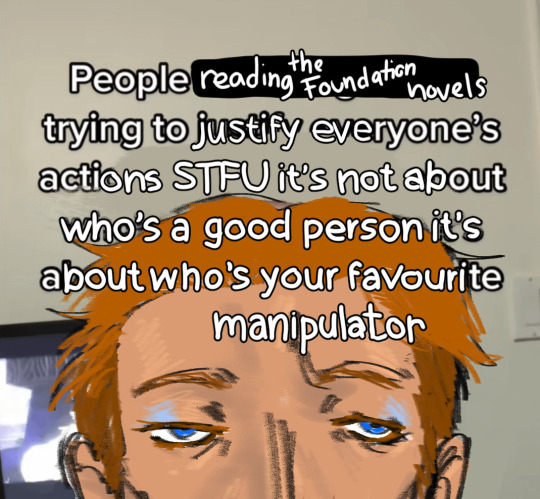
presented without commentary
#i keep quoting this to myself i thought i'd share with the world that's all hahahah#asimov chronology#do i need to tag more i don't want to#visual#mine
30 notes
·
View notes
Text
you would think writers would become more progressive over time, yet it turns out 1950s censorship was the only thing stopping Isaac Asimov from having every female character rip her shirt off and demonizing nonbinary people 🙃
#if you're gonna read the Foundation series you might as well stop with the original trilogy#Foundation's Edge wasn't too bad#the two main characters were super gay except for Asimov insisting they were straight#there was even istg a literal 'no homo' moment#where they were like 'I love you. I mean--NOT LIKE THAT AS A FRIEND I MEAN TOTALLY IN A PLATONIC WAY' yeah ok asimov#Foundation and Earth... I could have done without that#using 'it' pronouns for intersex people#and implying they were so fundamentally different that they might be an existential threat to humanity?#wtfffffff dude#also the ending barely made sense? I guess Asimov was always more of a short story guy so tying up a lot of threads neatly is not his forte#but that being the chronological end of the foundation series is just--#sigh.#bro.
3 notes
·
View notes
Text
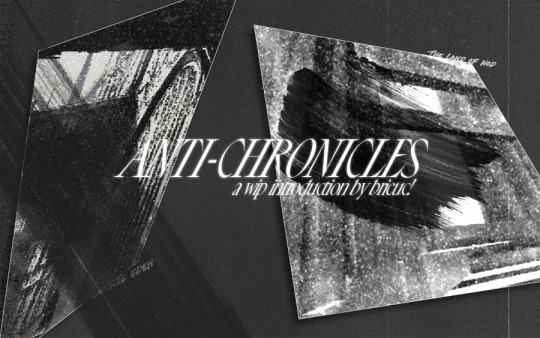
(art; x x)
Anti-Chronicles; a WIP introduction
Set between the warring states of Bronze Eden and Nod, Anti-Chronicles is a non-linear, non-chronological anthology of stories taking place in these respective lands, aiming to explore the culture, history, politics and society and how they have changed over the years. Bronze Eden is a heavily controlled theocratic state filled with forced surveillance and religious fervour, led by the Potentate Dynasty who have been ruling Eden for millennia. Nod is the neighbouring anarchist state, post-apocalyptic and is completely free of any organised government or laws, dealing with the fallout of a nuclear weapon that distorted local time and space dropped on them by Bronze Eden.
STATUS; 1st draft, lore-building.
P.O.V.; 3rd person limited, with occasional chapter-specific exceptions.
GENRES;
Fantasy
Steampunk fiction
Post-apocalyptic science fiction
THEMES;
Religion as a tool of survellience and power
The politics of monarchies vs anarchism
War's impact on citizens
Nuclear post-apocalypse
Time-travel
Human connection in spite of hardship, violence, and colonialism
POTENTIAL TRIGGER WARNINGS;
Violence
Swearing and derogatory language
Sexuality
Religion and religious trauma, specifically Catholic based
Puritanism
Disordered eating
Child abuse
Cultural homophobia, misogyny, racism, etc
Death
Ableism
Potentially more which will be outlined when relevant.
INSPIRATIONS;
Love, Death + Robots
I, Robot by Issac Asimov
Æon Flux
Dishonored (video game series)
Bayonetta (video game series)
Akira
The Real and the Unreal by Ursula Le Guin
CHARACTERS;
by nature of being non-chronological and non-linear, we have a lot of characters! some are kept to their own corner of the world, others move around. here is a short list of the more familiar faces, but there are many more you'll meet as we develop. To meet the entire cast, please refer to this post!
The Potentate Dynasty, the rulers of Bronze Eden who are said to be descended from the Empyrean Itself. Currently ruled by the aged Potentate Magnus, who has fathered six children during his reign. Living in the floating palace in the center of Bronze Eden, they keep to themselves, but their power is absolute.
The Imperators are the divine soldiers of Bronze Eden, also with a link to the Empyrean who are trained from a young age to be the protectors of the Temple and of the Potenates and priests who live within.
Sal Soloman and Ed Edwards are two scientists in Bronze Eden, who's meeting and relationship is both legendary and tragic.
Nod's warriors are disorganised and many, but by far the most prolific is Ucalegon, a native of Old Rhapsody. She works with her own agenda in mind, but nontheless has Nod's best interests in mind... for the most part.
Lady Jezebel is a radio presenter, activist and DJ who's voice has become synonymous with the Land of Nod. She is a pillar of Nod culture and beliefs, hugely influential though nobody knows her face or who she is outside of her radio work. If you want to know of the latest news or listen to the blossoming music scene, her radio is who you tune in to.
Vítor Cadogan is a resident of Golden Glimpse, one of the cities in Nod. Known for running a youth center, he was once a vigilante detective who sought to fight the crime that grew in the golden city's underbelly. He's had a change of heart and has dedicated the remainder of his life to supporting the youths of Golden Glimpse, but many hold his crimefighting past against him.
Other names you'll want to remember are Saccade, Helene, Ive, Cerebellum, Hendrix, the Praeceptor family, and Niles Clarke.
Please feel free to ask in the replies, my inbox or my dm's if you would like to be added to the tag list. This means being tagged in snippets, character profiles, lore dumps and graphics, and anything else related in a major way! I will not tag you in ask games, picrew chains and the like, as I wouldn't consider these notable to the actual tangible lore. You can ask to be removed at any time.
#brieuc.txt#anti-chronicles#wip intro#wip introduction#fantasy#steampunk#post-apocalyptic#science fiction
39 notes
·
View notes
Note
I'd really love the sci fi reading list, if it's not too difficult! Thank you for your explanation
Yes! Okay, requisite this is Not Authoritative Or Comprehensive claim, I'm a dork with a Russian degree, but here we go:
(I tried to organize this chronologically because if I did it thematically we would be here all day. Also, I still have more books, but they get increasingly niche. This is a Greatest Hits playlist, and if you look these people up, you will find their contemporaries)
(Long list below the Read More)
Jules Verne — 80,000 Leagues Under the Sea, Journey to the Center of the Earth. Excellent continuations of that exploration/'ostracized' genius figure, so popular in the previous century. French, so English translations. Kinda marks the transition point between 19th c. pure spec exploration and what we would call sci-fi. BUT BEFORE HIM...
Mary Shelley — Frankenstein is probably the first sci-fi novel as we know it. BUT BEFORE HER...
Margaret Cavendish — Okay, the 'first sci-fi novel' is hard to define for obvious reasons, but The Blazing World has as good a claim as any. Published in the 17th c., so it really traverses the genres, but includes a utopian kingdom accessible via the North Pole. Her husband was so impressed that he composed a sonnet for her, which serves as the epigraph for the novel; it's a wild read in the same way Robinson Crusoe and other early novels are, and I'm mostly including it here because it's so, so wild to read in 2023.
John W. Campbell — That dude. The hero's journey guy. His short story Who Goes There? Has been adapted a million times into a little movie called The Thing. Unfortunately got really into race science, so Isaac Asimov told him to fuck off. Edited the magazine Astounding Science Fiction, which in 1939 published Black Destroyer by Alfred Van Vogt, usually cited as the beginning of Golden Age sci-fi.
H. G. Wells — Big critic of class divisions in Victorian English society, coined the term 'time machine' as we think of it in his novel...The Time Machine. A lot of what we consider 'classic' time travel tropes were, if not invented here, had their seeds planted here. Also famous for War of the Worlds, leading to a MINOR disturbance when Orson Welles did a dramatic radio reading.
Edgar Rice Burroughs — the man, the myth, the legend. If I could persuade you to read one white English sci-fi author with rather dubious politics, it would be him, if only because of how influential he was. Mostly famous for Tarzan, but he also wrote a whole series about Hollow Earth that crosses over with Tarzan at some point (Pellucidar), as well as the series Barsoom (A Princess of Mars and its sequels), and Amtor (Guy named Carson Napier gets transported to Venus, which was a watery hellscape, as was popularly theorized for a while).
They're basically pulp comics before pulp comics, published in magazines, extremely lurid and dramatic, and he did write his own crossovers. These were what the first modern superhero comics writers often grew up reading and what inspired them—John Carter's cultural cachet was borrowed by Superman until it became his cultural cachet.
They're very fun, but also supremely products of their time, and extremely fond of the British Empire.
Judith Merrill — prolific writer and editor, who also wrote one of my personal favorite reactions to the atomic bomb in Shadow on the Hearth.
Gabriel García Márquez — we're gonna take half a sidestep into magical realism here (which is, to define quickly, a genre incorporating the fantastic into otherwise realistic narratives, often formed and associated with decolonial and post colonial Latin American fiction, but not always. It's a fuzzy genre). He wrote in Spanish, but I read him in English. One Hundred Years of Solitude is probably one of the great novels ever written. My mother is also telling me to rec Love in the Time of Cholera and she wrote about the man, so listen to her.
Jorge Amado — the sixties were the big magical realism heyday. Amado was Brazilian and his Dona Flor and her Two Husbands is a book my Spanish high school teacher made me swear to read some day.
Andre Alice Norton — Deserves a spot for being one of the most prolific sci-fi authors of all time during a time when sci-fi was INCREDIBLY inhospitable to women. Over 300 books!
Robert Heinlein — This man is the poster child for "male author who writes groundbreaking sci-fi novels but cannot be normal about women with a gun to his head". The Moon Is A Harsh Mistress is excellent and incredibly important for how comprehensive the creation of Luna and its workers was, even if it is very sixties free love. Also wrote Starship Troopers, the novel.
Edward Smith — you haven't seen drama until you read what they said when Lensman (first book is Triplanetary) lost to Foundation for the Hugo in the sixties.
Larry Niven — Fleet of Worlds! Ringworld won a whole host of awards and deservedly so in 1970. Fair warning, his stuff decidedly falls under "hard" sci-fi (lots and lots of discussion for plausible alien artifacts), though it is awesome just in terms of how he can communicate scale. If you see a big ring-like structure in space, you can thank this guy, basically (the term ringworld comes from here). Also did a bunch of co-writing. I haven't read his other stuff, but CoDominium is on my list (he co-wrote it. First book is The Mote in God's Eye). If you liked the TV show The Expanse when it did the alien stuff and the later books it never got to adapt, you'll love this guy.
Samuel R. Delaney — Dhalgren is a book I am forbidding you to research before reading. Go in prepared. You have been warned. You will either love this book or set it on fire.
Stanislaw Lem — Solaris. I started this novel last week after watching the Tarkovsky film and. It's doing something to my brain, that's for sure. It's a book where I have to read every sentence twice. If you read it, find a good translation if you don't speak Polish. The author famously is very mad at critics who use Freudian analysis for it, so tread carefully (it's about the limits of rationality and our ability to understand, so. Fair).
Joanna Russ — The Female Man is a seminal work of feminist sci-fi. It's—fascinating, to be honest. Discusses socially enforced dependence of women on men and the creation of a different gender, a "female man", when the protagonist chooses to reject it and thus her socially enforced gender. I wouldn't call it a transgender manifesto (written in 1975, features insufficiently masculine men undergoing sex change surgery, so...yeah) but it definitely awoke something in my brain when I was 16 lol. I would LOVE to see it revisited in literary criticism from a modern perspective, especially from trans people.
C.J. Cherryh — If we talked about female sci-fi authors from the 1950s-70s writing under gender ambiguous aliases, we would be here all day, so I'm picking the one whose books I got for cheap at a book sale. Her Foreigner series has such a good premise with descendants of a lost Earth ship and interstellar court drama, and it's SO fun.
Poul Anderson — the name is not a typo, do not look up Paul Anderson, you will never find him. I actually have a copy of Three Swords and Three Lions currently collecting dust on my shelf and judging me right now as I wait to read it. Tau Zero is one of the greatest things I've ever read. The time dilation stuff gets kinda dense at times, but he incorporates some interest in his Swedish history and folk tales into it, and his explanation of travel at the speed of light and incorporating that into his discussion of nationalism is incredible. The ending where they survived [REDACTED] and landed on what may have been [REDACTED] has been bouncing around my brain for a bit now.
Laura Esquivel — Like Water for Chocolate is from the magical realism reading list.
Salman Rushdie — Midnight's Children is one of those bucket list books, for better or worse. Recontextualized Indian independence from the British and the Partition through framing of a husband telling the story to his wife, as he actively tells the story to her. Really uses the fantastical versus the real w/history versus truth so well.
Nancy Farmer — The Ear, the Eye, and the Arm, for the kids lying about their age on Tumblr dot hell. Three kids try to escape a kidnapping after sneaking out—in 23rd century Zimbabwe. With the help of three mutant detectives. It rules.
Ben Okri — Okay, I have not read his stuff yet, but it is on my list. Other people here have discussed his influence on them in post colonial sci-fi. His big one is The Famished Road, first in a trilogy, and renowned for its discussion of the spiritual and realist world coexisting in African animist spiritual life.
Nnedi Okorafor — I have read one of her short stories, Remote Control, and currently have an book list with her other stuff on it. Other people I know vouched for her work. She specifically writes Africanfuturism and Africanjujuism centered around her Nigerian background, and follows on from the likes of Okri and Octavia Butler. I'd also add if you're a Stephen King fan when he's in Dark Tower mode, she's probably gonna have things that appeal to you.
Mentions that are absolutely influential but don't need explaining on this website: Franz Kafka, Ursula K Le Guin, Douglas Adams, N. K. Jemisin, Ray Bradbury, Arthur C Clarke, Isaac Asimov, Frank Herbert, Alduous Huxley, Philip K. Dick, Orson Scott Card, Kurt Vonnegut, George Orwell, Octavia Butler, Neil Gaiman, Toni Morrison.
(to be clear: you SHOULD read them, but you probably know who most of them are and/or why they're big deals. Most of them are also incredibly prolific, and explaining their bodies of work are other posts. Trying to make a list about other folks)
For more on Afrofuturism,(not to be confused with Africanfuturism), I recommend the shit out of Afrofuturism: The World of Black Sci-Fi and Fantasy Culture, full of short stories and guides to art and music. I, alas, lack similarly useful authoritative guides to other genres, but I have read that one, so wanna toss it out there. There's so much.
10 notes
·
View notes
Text
tag game: 3 books, 3 movies, and 3 songs
that changed your life or you just love.
Tagged by @zhabk4, thank youuu U__U <333 I don't usually do these (though it always makes me happy to get tagged!) but I was like. nnrrghhh must talk about Earthsea. soo.
(lots of rambling below the cut little bit embarrassed!!!!)
Books:
The Farthest Shore by Ursula K. Le Guin ; Nothing I say about this book (this series!) can do it justice honestly everyone on the Earth should read Earthsea. like really really read it patiently and intensely and with a savor because you will never encounter reality so closely and clearly ever again. everything about it is real to me but this book particularly struck me just because. well. lebannen. a force undeniable. I didn't know I was capable of loving so deeply and profoundly until I knew him. he is the best. I love you Lebannen 💥💥💥 I love everything about these books honestly. immense grace aside that shit also inspired perhaps the most intense and creatively demanding period of my life & broke down a lot of the mental partitions that I had constructed around what my hands are capable of. And I am still really bobbing through the wake of even now. Hopefully more marvelous things to come. There is much more strength to be drawn from this place yet if I can stomach it. sighs.
Death with Interruptions by José Saramago ; My words are failing me here but like. Saramago's voice and style have become real fixtures for me. I need to read a Saramago at least once every few months or my life loses its musicality. This is where I started with him so it gets to be on the list but Cain is also a great one for many many many more reasons that would be toooo much talking. for me to post.
I feel like by law I have to put Plato's Republic here which like. honestly not the most philosophically valuable work or even my drug of choice these days but was a thirteen year old's first inquest into the field that would become his only scholastic passion. so ! (He didn't even know he would have to read it seven times during his undergrad 😭) but if we want another novel to put here maybe We Need to Talk about Kevin by Lionel Shriver (mostly because of one sequence but also Shriver's great at writing in the voice of wry & cerebral women whose sentimentality is kind of shielded by their overt insight it gives them real internal lushness).
Honorable mention also to Isaac Asimov's I, Robot and subsequent novels of Asimov's future chronology which are currently fucking me up beyond measure. My recommendation here is read I, Robot (Or The Complete Robot!) and maaaybe Caves of Steel (tightly written marvel with only forgivable weaknesses of unprobed psychologies) and then stop. Just don't keep going okay. I've also had um Lamb: The Gospel According to Biff, Christ's Childhood Pal by Christopher Moore still swimming around in my mind despite having finished it a good while ago.
Movies:
Uhhh I don't w.atch. errr. Movies I can think of that I've watched just at all of my own volition: Raw (2016). good experience but didn't move me hugely taboo-pushing which is awesome conceptually but not in the right ways for me idk. not a bad movie at all though definitely some kind of stupid elements at play as well.
Uhhhhhhhhh.
?????????
Songs
Spent Gladiator 2 - The Mountain Goats ; I know I know I'm sorry I'm so trite and pedestrian but like. song with a non-negligible influence on me NOT killing myself <3
Wait List - All Get Out ; song with a non-negligible influence on me actively killisdukydhkuhldfhuik
I/m Not Here [missing face] - The Twilight Sad ; idk is this even a song I could live without. could I have the strength to do anything if not for this five minute dronefest. they need to start creating standardized ritual/ecstatic behaviors for the tracks off this album.
Honorable mentions: San Fermin's The Woods (if you were to ask me about artists they would most definitely be very much up there... Mr. Ludwig-Leone's artistry has been cradling me for a very long time), Say Yes to Everything by We Cut Corners (best band ever ever ever!!!), Topography by Civilian, Dump Your Dreams by A.S. Fanning (i love music).
I did badly at this but I think I made up for not having any movies by talking so much elsewhere. ermmm.
Only tagging @twilitfossil (Jesse Pinkman voice) do it bitchhhhhh also @ataliaf but only if you want to n__n <3333
#mine#can you tell i've been talking to myself all day every day for over three weeks#and I have so many words stowed up#koma also I'm reading a Murakami right now!! never touched any of the ones you mentioned/recced but I like working my way through entire#corpuses so perhaps I'll get around to it in some time :) I'm looking forward to it
4 notes
·
View notes
Text
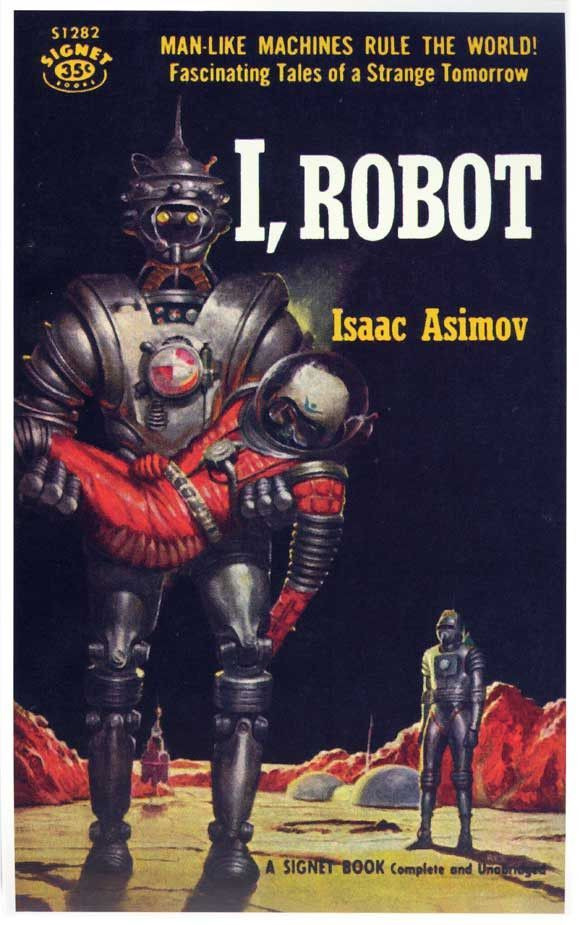
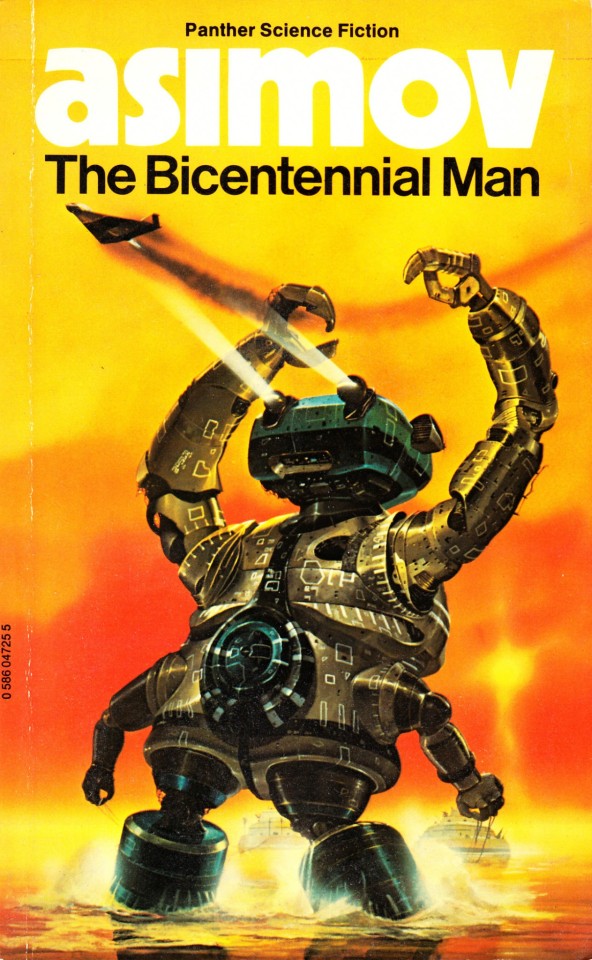
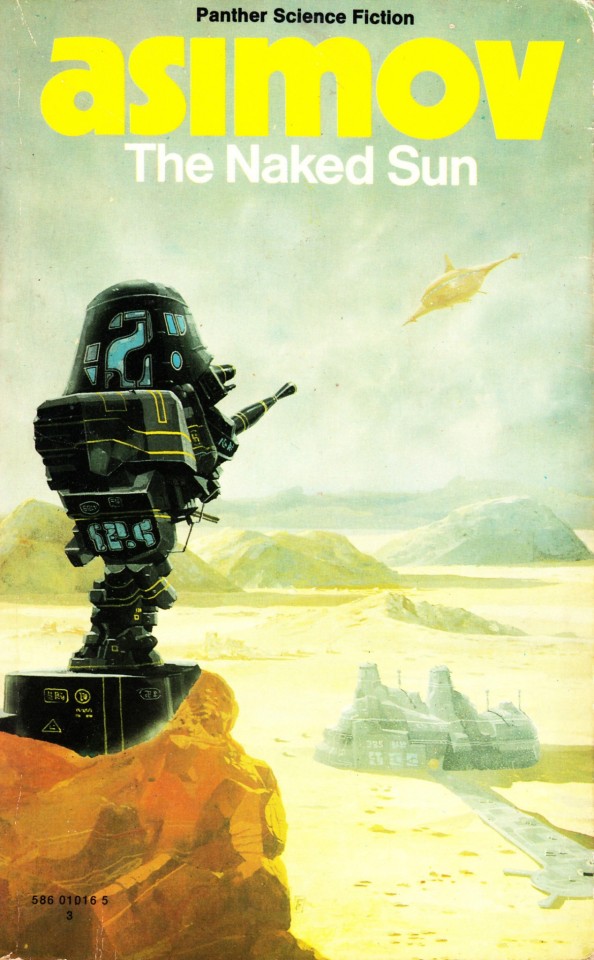
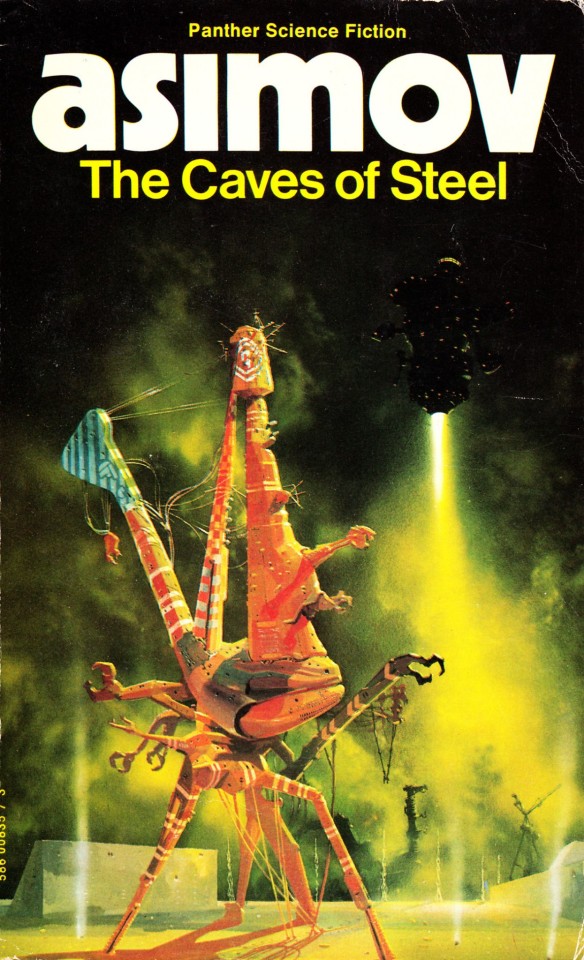
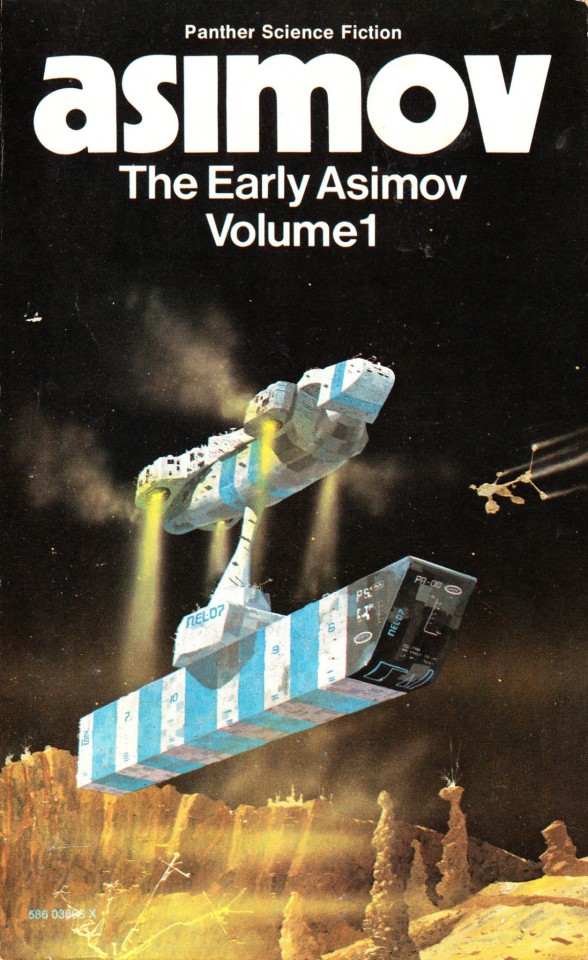




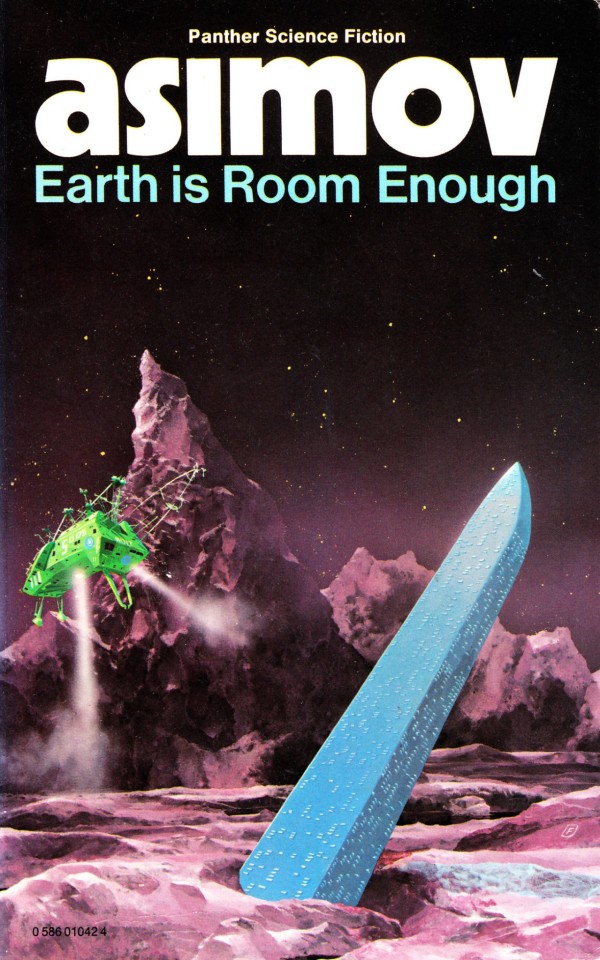
The Robot series is a series of 37 science fiction short stories and six novels by American writer Isaac Asimov, featuring positronic robots. Asimov would later merge the Robot series with his Foundation series.
The union of both series would come to tell the story of how man interacts with the robot, which is treated as the most advanced tool that he has created and as it was essential for the expansion of the human being throughout the galaxy. With the novel Foundation and Earth, Asimov would also link the Robot Series with his Foundation Trilogy.
Books in chronological order by narrative:
1. I, Robot (1950)
2. The Bicentennial Man (1976)
3. Mother Earth (1949)
4. The Caves of Steel (1954)
5. The Naked Sun (1957)
6. Mirror Image (1972)
7. The Robots of Dawn (1983)
8. Robots and Empire (1985)
-----------—-------------—----------------—--------------
La serie Robot es una serie de 37 cuentos de ciencia ficción y seis novelas del escritor estadounidense Isaac Asimov, que presenta robots positrónicos. Más tarde, Asimov fusionaría la serie Robot con su serie Foundation.
La unión de ambas series vendría a relatar la historia de cómo el hombre interactua con el robot, del cual se trata como la herramienta más avanzada que ha creado y como fue indispensable para la expansión del ser humano por toda la galaxia. Con la novela Fundación y Tierra, Asimov también vincularía la Serie Robot con su Trilogía de la Fundación.
Libros en orden cronológico por narrativa:
1. Yo, robot (1950)
2. El hombre bicentenario (1976)
3. Madre Tierra (1949)
4. Las bóvedas de acero (1954)
5. El sol desnudo (1957)
6. Imagen de espejo (1972)
7. Los robots del amanecer (1983)
8. Robots e imperio (1985)
5 notes
·
View notes
Text
Male characters vs. female characters
NO! NO! Not more things annoying me that I can't directly engage with because I'm an inverterbrate! The whole 'relating to male characters more because they're written better than female characters' thing is fucking bullshit copium because it implies that there are not well-written women throughout history in literature and cinema - that people do not empathise with - which is such a narrow and boring perspective, and obviously this is a statement constrained to fanatic spaces, and fanatic spaces tend to prioritise works that enable transformative works and interpretation (e.g. find me a fandom of a classical book on here, or an esoteric Weimar-era German film), which is why Marvel (with endlessly elastic setpieces, characters, tropes, etc.) flourishes in fandom - which then, even further, is an oversight of this statement: because it is not that well-written women do not largely exist - fanatic spaces, and works that attract fanatics, do not prioritise women.
That means you need to identify - as I have tried to do so here - why it is that elastic worlds (especially works-in-progress - which limits our chronological view) attract fans, and why it would be that those elastic worlds have, say, potentially underwritten characters, or elastic characters, and an audience that is interested in elastic characters - it's why underwritten side characters (suspect: Arthur/Eames from Inception) are bait for transformative fandom. Take note, though, that underwritten male characters are afforded interiority underwritten female characters aren't.
So - if fanatic spaces prioritise elastic works - and underwritten characters are in actual fact preferred to some degree - or at least an elastic setting - then you can already see what point I have worked towards. Well-written female characters are not the actual problem here; identifying fandom trends, fandom attractions, and how transformative fandom operates is actually very important, more important than saying that xyz media has well-written female characters - yet there's little transformative fandom about her.
That's why it's an absurd statement to say that women are by and large underwritten - historically ignorant, literarily ignorant, cinematically ignorant, culturally ignorant, offensive to women, offensive for the implication that men have some innate inability to write women (it's a personal failing - or in the case of Asimov, I don't think he writes anyone particularly well), and, truthfully, ignorant of fandom, and the way fanatic spaces operate, and the types of works they prioritise, and the types of characters they prioritise.
I am not trying to make a value judgement about this fandom behaviour; I know it so well because I know my preferences for fandom activity are works-in-progress with elastic worlds - I am familiar with this because it is my own behaviour and behaviour I note in others and you can broadly see in fandom trends.
You will see this behaviour everywhere: for Tumblr on what ships are trending in the year's statistics, the statistics of AO3, the climate-like migration of popular users from fandom to fandom with familiar ship archetypes and elastic fandoms, to what are the hot new young things that are out-of-the-box accessible... it's everywhere; there are some works suited to fanatic spaces and some works that aren't. The stereotype of the Trekkie or Star Wars fan exists for a reason: malleable, elastic universes, if not spaces for transformative works - this is going beyond fanatic spaces online in spaces we are familiar with right to our culture's foremost nerd stereotype - with universes to learn in detail and practice and repeat that information - a type of transformative behaviour, in a way.
When we are talking about what characters are or aren't popular, whom we do or do not sympathise with, it is a question about fandom and fandom behaviour - and what makes fandom fundamentally enjoyable - and not simply about the merit of a work in question.
#stirring the pot#on fandom#complaining about that bullshit of male characters being better written than female characters
4 notes
·
View notes
Text
Years ago I wrote a post that said that if you watch Lucas’ Star Wars movies in chronological order, you get the story of Anakin (the power of love) and if you watch them in order of release, you get the story of Obi-Wan (the pain of love). I think there is a similar strategy for Asimov’s Robot-Foundation book series: if you read them in chronological order, you get the story of Daneel (a robot tries to save humanity and ends up transhuman) and if you read them in order of publication, you get the story of Hari (a man tries to save humanity and in the end is just a man).
In both series, you have this mythic superhuman making decisions of cosmic significance to end the story, and then the storyteller went back in time to develop the inner life of one of the superhuman’s companions. Both of the prequel narratives are darker and more mature than the original stories, partly because Obi-Wan and Hari are more complex characters than Anakin and Daneel. (But I love them all equally!) I think Lucas and Asimov also wanted to add more nuance and sadness to their stories.
Another important comparison is that both Anakin and Daneel live their whole lives childless, then end their stories with a last-minute “adoption” of a young person -- a sudden, profound influence over the next generation. But both Obi-Wan and Hari adopt their sons near the beginning of their stories, and have been through all the ups and downs of fatherhood for decades. In the end, it’s not their sons but their grandchildren who give them hope for the future, and they feel a distinct lack of influence over these kids.
#asimov blogging#star wars#isaac asimov#george lucas#anakin skywalker#obi-wan kenobi#daneel olivaw#hari seldon#i'm making myself cry... i love these guys so much
6 notes
·
View notes
Note
fave 10 characters from any media and why u like them?
oh um that's one i have to think about anon <3
in no particular order, let's see...
Tobias (Animorphs) - i like the sweet and kind and sensitive type who's forced to reassess where he is as a person when he's stuck in a situation that doesn't allow him many leeways + confronting the inherent bias and hypocrisies of being human while... well. not being in a human body. (Tobias in Animorphs is a kid who's given the power to turn into animals for 2 hours, but gets trapped in the body of a hawk. This book series is probably one of the first hyperfixations i've ever had.)
Bilbo (The Hobbit) - someone who'd grown complacent with his life as it was, without listening to the part of him who asked for something different finally is pushed into taking that step into the something new and ends up finding that the world is so much bigger and so much MORE than he ever could believe... and then loses it all, goes back home alone and full of regrets and memories and loss, stuck in a place that should be his coveted home but is restrictive and small and too little all the same but also safe, and until the very last, continues to listen for the sounds of foreign footsteps by the door of his house.
Zenyatta (Overwatch) - if he was just a monk, it wouldn't have been as compelling as the idea of a monk who is a robot -not a cyborg, but a complex AI robot with what counts as a soul. A robot with a soul who can touch and connect with a higher spiritual being in which he believes into, a role of semi-pacifist who faces his own brand of racism as he's not human and never will be, threading on a thin line for acceptation and respect and equality and who believes so strongly in change and carving your own path. The finer appeal of life and a soul in a robot's body.
Giskard R. Reventlov (Asimov) - feels weird to go directly for the jugular with yet another robot but. Giskard appeared in two books from the Elijah Baley saga written by Asimov. It takes place chronologically in-between his early robot books (growth of robot use by humans) and the Foundation setting saga (far future where Earth is the first of many planets colonized by humans). This robot can read minds, which binds him even more strictly to the Three Laws of Robotics. I love him to a point it's hard to define why i do. He freezes when faced with a conundrum over whether the possible destruction of Earth will be a positive or not for the advancement of humans by allowing them to expand into space, but not before admitting his own limitations and gifting Daneel (another robot) with the same power of reading minds, tasking him the herculean job of aiding humanity in its growth.
The Sandman (Rise of the Guardians/Guardians of Childhood) - fascinating character that i met with the movie first, but i found myself loving as a character from the book version too. I love the softness of his interactions with others, and i personally love that he does not speak, i find it opens so many new ways of interpretation. Also his design is top notch and there is so much strength in *dreams*
Natsume (Natsume Yuujinchou) - hello we got manga here. uh. I personally find myself gravitating towards characters who, despite everything else, choose to be strong and kind in the face of opposition. Kindness is a choice. Natsume's story is that he can see spirits, and finds purpose in an old journal his grandma, who also could see spirits but had a sad life, left behind. Seeing characters who were not loved and had a hard time trusting others choose to be kind and find their own family is probably my favourite trope and i'll always love the innate strength of characters facing of things that are bigger than them and discovering the depths of their own selves.
Watanuki (XXXHolic) - similar to the above, but different. a twist of fate of a character who was never meant to exist learning to not only crave life but want it, want to survive in spite of fate, wanting to live and experiment life as it was meant to be, day after day, even if. even if. even when. (but BOI was my boi watanuki done dirty) He also sees spirits, he's also unable to control his own fate, but he's taught, little by little, that his own life has a meaning and a purpose. He's taught that he's wanted. that people care. It is a very important teaching.
Wander (Wander over Yonder) - hello? absolute optimistic alien whose entire shtic is wander around the galaxy to see how amazing it is? making friends and being positive even when life drags u down? knowing that, again: kindness is a choice and its not a bad choice, and that little good deeds matter? you know how much these things mean to me? no? oh god they do so much. in bad times, i cling to this kind of message. there is strength in taking the little things and simply living for them.
Hercule Poirot (Agatha Christie) - how could he not be here? this is the one and only detective i will love. (sherlock holmes is good but like. he'll always be secondary but ill always always always love poirot). this also includes the only actor ive ever seen that was able to truly portray the essence of this man, David Suchet. no other actor. *hisses* i just really love me a short, polite gentleman with incredibly specific manners who has his own sense of justice and an amazing brain.
Saitama (One Punch Man) - i guess i can end this with him haha. there is. a lot i can say about subversion of like. typical shounen/seinen tropes and whatnot, but at the end of the day, saitama's just a person. he's depressed and clinging so hard to the one thing he thought would be able to help (and now its worse than before) and having a hard time feeling like he's welcome in a society like this. he finds no place for himself, alienated as he is. i can. relate a lot to this. and despite everything else - yes its coming u know its coming. he chooses to do good things. he chooses to be a hero. he's by no means perfect, nor would i like him if he was. but he fights every day and that's all that matters in the end.
#fran talks#Anonymous#ekjghksfjhd#nice anons#this was a bit more uh. emotionally charged than i thought it would be#someone said u can learn a lot about someone by the tropes they like#i feel like the ending thing about me is 'fran loves found family and choosing kindness' and i guess that's a good estimate of me#i could have picked a lot of other charas but these are the ones that resonate with me at this current moment in time#10 was already too many as it is dfkjshdkfjh#ty anon#<3 i hope it was interesting to read i guess?#long post
3 notes
·
View notes
Text
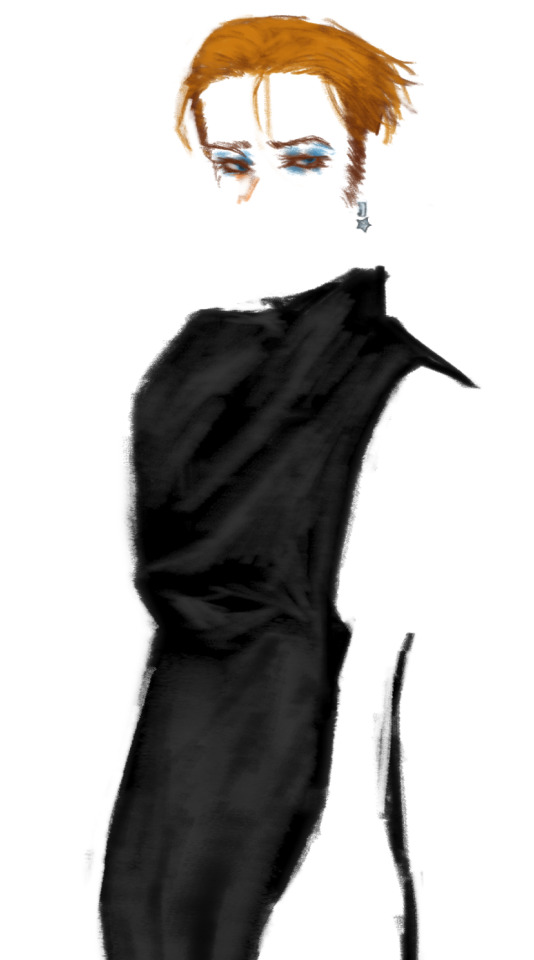
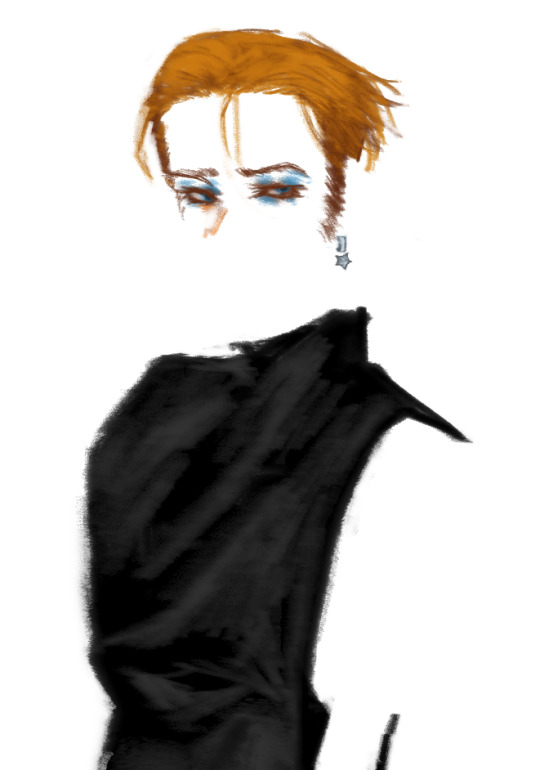
n-levels of daneel abstraction
outfit from this (use your imagination)
#this was fully rendered until i realized it was better like this lol#also there's just a crop because the preview was awkward#mostly posting this because i got annoyed at the top of my dash (motivated by impure things like cope seethe mald)#r. daneel olivaw#ike is like what are you doing to my robot it's called cherishing him. it's called being HONEST. no it's okay ike would never be mad at me#asimov chronology#lmfao#queue#visual#semi-finished
19 notes
·
View notes
Text
Apollo's Concert Hall
Do you like music [1]? On his lyre, Apollo plays the finest tunes to transport you in a timeless time [2]. His music seizes [you] in the Real of [your] being [3]. The city seems most clearly to have imprinted her timeless proportions [4] on you, as you lost [your] sense of life as a chronological passage from yesterday through today into tomorrow [3]. Contemplate the city in its lifeless form, without movement, without change. Only the monoliths can be seen. Only the concrete. Music [is the door] into the highly abstract realms of [...] architecture [5]. In music, [you] hear what [you] cannot see, the vibrating life force beneath the flow of Vorstellungen [3]. The ambition of [Apollo's] music room, then, is not to function as a space for making music, but rather to show itself as a room that is [5] and is not, for time will be timeless [1].
[1] Asimov, Complete Robot Anthology
[2] Koolhaas, Elements of Architecture
[3] Zizek, Less Than Nothing
[4] Harrison Wood Gaiger, Art in Theory 1648 1815
[5] Leatherbarrow Eisenschmidt, Twentieth Century Architecture
0 notes
Photo
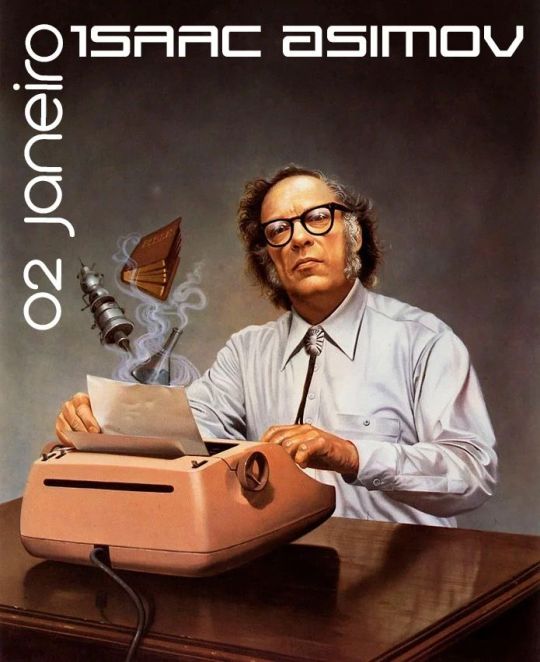
02 de janeiro, dia de Issac Assimov Asimov é considerado um dos mestres da ficção científica e, junto com Robert A. Heinlein e Arthur C. Clarke, foi considerado um dos "três grandes" dessa área da literatura. A obra mais famosa de Asimov é a Série da Fundação, também conhecida como Trilogia da Fundação, que faz parte da série do Império Galáctico e que logo combinou com a Série Robôs. Também escreveu obras de mistério e fantasia, assim como uma grande quantidade de não-ficção. No total, escreveu ou editou mais de 500 volumes, aproximadamente 90 000 cartas ou postais, e tem obras em cada categoria importante do sistema de classificação bibliográfica de Dewey, exceto em filosofia. A maioria de seus livros mais populares sobre ciência, explicam conceitos científicos de uma forma histórica, voltando no tempo o mais longe possível, quando a ciência em questão estava nos primeiros estágios. Ele providencia, muitas vezes, datas de nascimento e falecimento dos cientistas que menciona, também etimologias e guias de pronunciação para termos técnicos. Alguns exemplos incluem, "Guide to Science", os três volumes de "Understanding Physics" e a "Chronology of Science and Discovery", e trabalhos sobre Astronomia, Matemática, a Bíblia, escritos de William Shakespeare e Química. #isacassimov #ficção #ficcaocientifica https://www.instagram.com/p/Cm7dgD9ODdD/?igshid=NGJjMDIxMWI=
1 note
·
View note
Text
Nexus 10 pdf annotation sdk
NEXUS 10 PDF ANNOTATION SDK >>Download (Descargar)
vk.cc/c7jKeU
NEXUS 10 PDF ANNOTATION SDK >> Leer en línea
bit.do/fSmfG
5 jul 2022 — Writing a literature review using a nexus approach offers the opportunity to crystallise ideas that have been generated throughout the research @return Returns a reference to the same Editor object, so you can * chain put calls together. diff --git a/core/java/android/content/pm/LauncherApps.java de DC Robles · 2014 · Citado por 32 — Rethinking the Research-Teaching Nexus in Undergraduate Education: Spanish ://gtea.uma.es/mcebrian/wordpress/wp-content/uploads/2012/07/rediris08eng.pdf. Easily markup PDFs to fill out forms, edit/grade papers, or sign documents. Import images, draw shapes, and add typed text to your notes. Annotations, Striations and Souvenirs, Van Doren Waxter, New York, NY. Techo Bomba, Espacio Bloc, 10th Havana Bienal, Havana, Cuba (National selection).31 ene 2015 — El recién nombrado Editor de Atlantis, el profesor Juan Camilo 10. Un saludo desde la Presidencia de. AEDEAN. Estimados/as socios/as:. @enduml. Guía de Referencia del Lenguaje PlantUML (1.2021.2). 10 / 406 Puedes usar también las palabras claves interface, annotation and enum . de F Collection · Citado por 7 — annotations to non-musical items in his library is by Pedro L6pez Garcia on the Falla- on the nexus between his evocative orchestral score Noches en 10s 11 mar 2020 — nexus 2020-02. 10. I, Asimov is not the kind of autobiography that follows a detailed chronological order. When he decided to write.
https://www.tumblr.com/devedixexo/697914043627945984/hibernate-annotations-reference-pdf, https://www.tumblr.com/devedixexo/697915738049101825/hydrolysis-of-lipids-pdf, https://www.tumblr.com/devedixexo/697914757791039488/vidurkis-pdf, https://www.tumblr.com/devedixexo/697913899063918592/trml2pdf-unicode-nepali, https://www.tumblr.com/devedixexo/697915029299888128/lm139d-pdf-files.
1 note
·
View note
Text
This is the order I go with because it was on the book. Asimov linked his early robot novels and empire novels to his foundation series, which spans over a million words lol. I found this on reddit.
The author himself, Isaac Asimov, wrote in the Author's Note of the Prelude to Foundation that he is providing a guide for those readers that might appreciate it since the books "were not written in the order in which (perhaps) they should be read." Therein, he offers the following chronological order:
The Complete Robot (1982) Collection of 31 Short Stories about robots.
The Caves of Steel (1954) His first Robot novel.
The Naked Sun (1957) The second Robot novel.
The Robots of Dawn (1983) The third Robot novel.
Robots and Empire (1985) The fourth (final) Robot novel.
The Currents of Space (1952) The first Empire novel.
The Stars, Like Dust-- (1951) The second Empire novel.
Pebble in the Sky (1950) The third and final Empire novel.
Prelude to Foundation (1988) The first Foundation novel.
Forward the Foundation (1992) The second Foundation novel. (Not in Asimov's list as it had not been written yet.)
Foundation (1951) The third Foundation novel, comprised of 5 stories originally published between 1942-1949.
Foundation and Empire (1952) The fourth Foundation novel, comprised of 2 stories originally published in 1945.
Second Foundation (1953) The fifth Foundation novel, comprised of 2 stories originally published in 1948 and 1949.
Foundation's Edge (1982) The sixth Foundation novel.
Foundation and Earth (1983) The seventh Foundation novel.
This list from Prelude to Foundation (1988)
#isaac asimov#chronological order#i still call the whole thing the robot series#i love these books so much#i hated the ending though#you should me and emmy argue abot eto demerzel being r daneel#hear*
0 notes
Text
Upon the Clear Distinction Between Fandom and the Baker Street Irregulars
BY LYNDSAY FAYE
November 30, 2012
In light of the ever-expanding popularity of the Sherlock Holmes mysteries in conjunction with recent adaptations including the Warner Brothers films, the BBC series, and the CBS reimagining, it falls to me to discuss certain disturbing tendencies on the part of new devotees to refer to that venerable institution, the Baker Street Irregulars, as a “fandom” when it is actually a literary society. The youth of the Sherlockian world will be excused for making this dare I say elementary error, since the case for the distinction has not been hitherto laid out. Following the summation of this article, however, fans and traditional Sherlockians alike will have reached a much clearer understanding, and the unfortunate misnomer of referring to the present Irregulars as a “fandom” will doubtless cease and be swiftly forgotten.
(Note: for the purposes of this intellectual exercise, the possibility that the BSI may potentially be a storied and erudite literary society and a happily thriving fandom simultaneously will be ignored. This decision was made in light of the fact that a noun cannot be two things concurrently, the way the Empire State Building is not both a functioning office tower and a tourist destination, and the way Bill Clinton is not both a former president and a saxophone player. Arguments that the BSI is peopled by both cultured readers and by eager fans would only muddy the issue, and therefore will not be entertained here.)
According to the Online Etymology Dictionary, the word fandom dates from 1903 and is defined simply as “the realm of avid enthusiasts.” Although undoubtedly a positive, even a flattering definition, already we can see that this is an inaccurate way of describing the Baker Street Irregulars, founded in January of 1934 by Doubleday editor Christopher Morley and later permanently established as the premier Sherlockian society by Edgar W. Smith. While the BSI was conceived as a group of congenial, clubbable men who admittedly shared an avid enthusiasm for the Great Detective, no mention whatsoever is made in the definition of fandom of a taste for adult beverages, and the drinking of toasts to Sir Arthur Conan Doyle’s characters, which is of such import to the group as to be codified in the BSI’s by-laws. As a matter of fact, the words “Sherlock Holmes” appear nowhere in this document, while the words “drunk,” “drink,” “round,” and “toast” occur six times in the brief record. Describing the BSI as a fandom is thus clearly a counterfactual practice, and should be treated as such.
Of note, because the dates could potentially lead to confusion, is the fact that the Irregulars were founded in 1934 in New York City, at very close to the identical time period when the science fiction fandom was forming convivial societies of “avid enthusiasts” in order to discuss space travel, interplanetary colonization, their whip-smart literary contributions, and large-chested alien females. The Futurians, according to Frederik Pohl’s autobiography, were founded in 1934 in New York City; the Scienceers were founded in 1929 in New York City; the Los Angeles Fantasy Society was founded in 1934 in Los Angeles; and the National Fantasy Fan Federation was founded in 1941 in Boston. These societies in no way resembled the BSI, however, for their purpose was to discuss speculative, fictional adventures, while the BSI’s purpose (apart from toasting) was to discuss Sherlock Holmes. The Grand Game, as it’s called, a form of meta-scholarship, bears but scant resemblance to the doings of folk who pen Middle-Earth chronologies and dictionaries of the Klingon language. Those who suggest the BSI is a fandom will also note that, as a literary society, the BSI has always been peopled with thinkers and literary luminaries such as Isaac Asimov, while the Futurians boasted as one of their members Isaac Asimov, who was undoubtedly a different Isaac Asimov to the deservedly admired creative philosopher invested in the Irregulars.
One of the most self-evident differences between the Irregulars and those involved in fandom is the latter’s tendency to memorize an enormous amount of trivia regarding their specific preoccupations, be those preoccupations Battlestar Galactica or fiction featuring anthropomorphized dragons. A member of the Star Trek fandom, for instance, could readily inform an outsider that when Captain Picard was captured by the Cardassians, he insisted despite being cruelly tortured that the number of lights shown to him numbered four; such remarkable displays of knowledge are all too common among fandom enthusiasts. Invested members of the BSI could undoubtedly inform non-Sherlockians that Sherlock Holmes’s ancestors were country squires, that John Watson was an invalided member of the Fifth Northumberland Fusiliers, and that Holmes is on record as having possessed three dressing gowns (blue, purple, and mouse), but as these are matters of historical fact, knowledge of them is much more akin to familiarity with the Gettysburg Address. I say again: do not succumb to lazy terminology and misidentify the BSI as a fandom. The one is concerned with an exceedingly popular series of crime stories, and the other is concerned with pop culture.
The activities of fans vs. traditional Sherlockians are hugely divergent. While fans come together to discuss their favorite sci-fi stories, television shows, and films, Sherlockians confine their conversation (and toasts) exclusively to the sixty stories, referred to as the “canon.” No mention is made of adaptations of the Sherlock Holmes mysteries; indeed, it is safe to say that the BSI as a whole is unaware of such bastardizations of the original writings, if indeed such things as movies and television shows based on the works of Sir Arthur Conan Doyle exist, which is doubtful. In addition, fandom engages in a pastime termed “cosplay,” defined by Wikipedia as “a type of performance art in which participants don costumes and accessories to represent a specific character or idea.” Such behavior would be anathema to a Baker Street Irregular, some of whom have been photographed dressing in Victorian garb and deerstalker hats.
Denizens of the fandom community fail to confine their “avid enthusiasm” to mere discussion of hobbits and tribbles; they also, as a group, have a marked tendency to collect memorabilia relevant to their favorite characters, spending precious funds in pursuit of items such as action figures and animation cells. A comic book collector would think absolutely nothing of paying triple digits for a prized mint-condition issue of Spider-Man, for example, while my copy of the 1892 issue of the Strand Magazine…no, strike that, I beg your pardon, the comparison is similar but ultimately misleading. Irregulars of my acquaintance have amassed collections of Sherlock Holmes art, Sherlock Holmes books, Sherlock Holmes knickknacks, Sherlock Holmes pins, Sherlock Holmes translations, Sherlock Holmes reference volumes, and Sherlock Holmes talismans such as magnifying glasses or pipes, but as these are clearly objets d’art, they find no equivalency within the realm of fandom.
It is of particular importance to note that fandom participants often write what is termed fanfiction, fictional works featuring their beloved characters in various situations of the fan’s own imagining, defined as “stories about characters or settings written by fans of the original work, rather than by the original creator.” Whenever a writer pens a story about a character created by another author, that tale falls under the umbrella of fanfiction, a practice that the Baker Street Irregulars would find both mystifying and vaguely distasteful. In fact, the mere concept of writing new stories starring characters not belonging to the author would strike dismay into the hearts of the BSI, who very often write and read pastiches featuring Sherlock Holmes and John Watson (a pastiche is defined as “a work of art, literature, film, music, or architecture that openly imitates the work of a previous artist”). As you have already recognized, no doubt, pastiche is entirely different from fanfiction, as fanfiction is specified as being penned by fans, and as I have argued previously, the Baker Street Irregulars are not fans but rather a literary society, and thus are categorically incapable of writing fanfiction. The notion that they could be both we have already dismissed as specious.
One must bear in mind as well the ironclad argument that the BSI was founded in the tradition of the great metropolitan men’s clubs of the 1930s, and thus bears no resemblance whatsoever to fandoms, which are largely concerned with grown men and women wearing tights. I find this line of reasoning particularly compelling, since it is common knowledge that once a group forms around a certain idea, it remains always the identical entity, indistinguishable in its modern incarnation from its origins, free from growth, change, or adaptation. Admittedly the BSI is no longer exclusively for men, but that is an admirable mark of progress and should be considered accordingly. Just as the company Apple Inc. sells small personal circuit boards hand-crafted by the artist Steve Wozniak (keyboard and screen not included), the BSI is emphatically not a fandom. And please stop referring to them by such blatantly fallacious terminology.
Lastly, a word upon the subject of respect for the gentleman who made our literary society possible, Sir Arthur Conan Doyle. There are some who take mild offense to those who speak of the BSI as a fandom, but I am not of their number, though it is worth mentioning out of deference that Doyle would certainly be outraged by the term. So beloved a character was Sherlock Holmes to Doyle that he spoke of him always with the soft light of adoration in his eyes and a flush upon his cupid’s cheeks, joy suffusing his features whensoever the subject of his masterful sleuth was raised. Were Doyle to be reanimated and exposed to the neophytes who ignore all discrepancies and insist upon wrongly identifying the BSI as a fandom, his mighty love for his hero would so overwhelm him, and his fury at the misidentification swell into so vast a storm cloud of righteous rage, that he would probably decide to remain alive simply for the pure, unadulterated pleasure he derived from writing the Sherlock Holmes mysteries, and would deliver unto us sixty more cases. And lo, global warming would be reversed, and he would find a cure for herpes.
I trust that this article clears up any remaining confusion regarding the word fandom, and its woeful inexactitude when characterizing the Baker Street Irregulars. I likewise hope I have assured the reader the BSI cannot be both a respected literary society and a fandom, any more than Australia can be both a continent and an island. One earnestly hopes that this will settle the matter for good and all, and we can move on to other, better topics. In the meanwhile, I am going to don my deerstalker and write a story in which Sherlock Holmes fights the Cardassians, that being the sort of activity relevant to my interests. Thank you.
1. Am I wrong or is this a bit rude?
2. Why don’t we hear more stories about how Doyle actually loved Holmes? It’s as though people want the character to be remembered as hated.
Lyndsay Faye is the author of Dust and Shadow and The Gods of Gotham from Amy Einhorn Books/Putnam. She tweets @LyndsayFaye.
@elwinglyre @sarahthecoat @sussexbound @fellshish @artfulkindoforder @johnlockedness @ebaeschnbliah @tjlcisthenewsexy @madzither
source
15 notes
·
View notes
Text
FOUNDATION (Isaac Asimov)
The third chronologically but the earliest writings included in this series, I found it more compelling than the more recently published works in the series. The domination of ideas and confidence that reason would ultimately prevail despite momentary crisis remains an inspiring alternative to the dominant ideals and practices of our time. Really a collection of short stories, it traces the establishment of a way to preserve and expand the practical applications of psychohistory through the establishment of foundations at opposite ends of the galaxy to guide humanity in such a way that 30,000 years of chaos upon the collapse of the galactic empire would only last 1,000 years. Different crisis are the focus of the different stories - each resolved in a way that furthers Seldon’s original aims but all of which are solved in ways that didn’t seem obvious at the time. Lots of action, trials and adventures interspersed with philosophical reflections. Really engaging.
1 note
·
View note